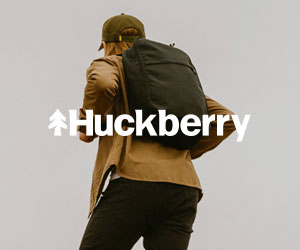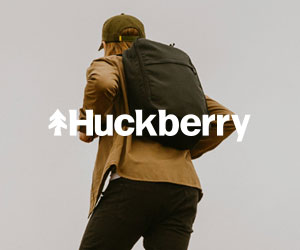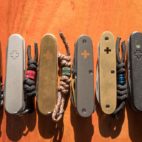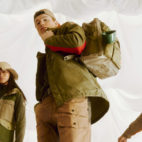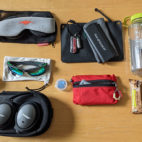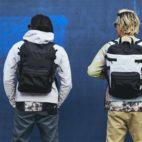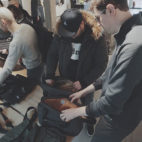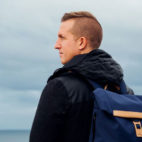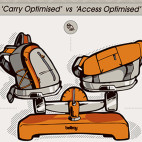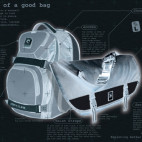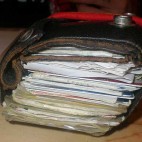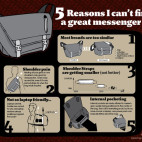Berlin Muse :: Riding around Berlin with the MONO M80
When the sun shines bright in Berlin, you go out riding. In the city abundant with parks and leisure time, Berlin Muse keeps it low-key and local this month, taking us – and the revolutionary MONO M80 guitar case – on a lackadaisical sojourn through Berlin’s intrepid recreation spaces: a decommissioned military airport, a reserve in the former German Democratic Republic, the lofty remains of an old US spy station and a spooky, abandoned amusement park.
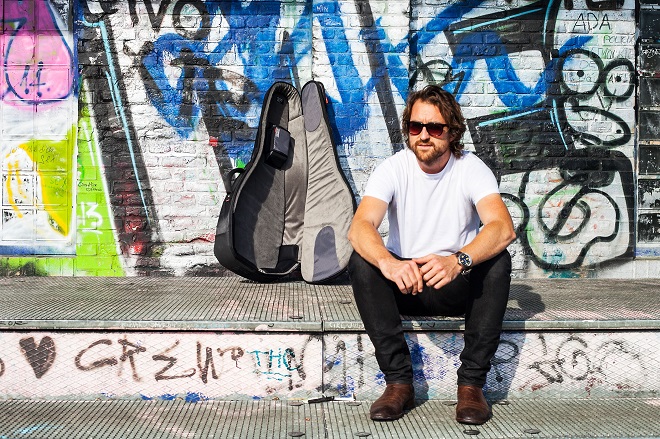
It’s late morning in Kreuzberg, mild out. Fresh fallen leaves butter the cobble bricks, one of those voidy days when the streets are mellow and nobody’s in a hurry to be anywhere. We’re in between extremities now; 30-degree days and 10pm sunsets are gone, the impending winter of dude sweaters, gluhwein and underwear-in-fours still way off yet, but not far. Thankfully, today is just fine and we’re heading out to explore.
We live on the fourth level of a 1950s-built, citrus-coloured concrete apartment block on the corner of a Reichenberger kiez. Our steel entrance door groans as we step outside to the rear courtyard and the green mesh fence where we lock our bikes. We unchain them, just as our next-door neighbour Bowser passes us with his small pooch. Bowser is a Smeagol-esque fella in his mid-forties who dresses like a 1980s sharpie-punk. He also enjoys cranking his hyper-decibel stereo at all hours; it shakes the whole complex and booms through the stairwell from roof to basement.
Months ago, 2,500 riot police descended on the neighbourhood and locked down our street and the entire kiez for nine days as they attempted and failed to shut down a refugee camp that had been peacefully occupying a disused school nearby for the past two years. Bowser sat on his balcony all week, stared the constabulary down, chain-smoked and cranked vociferous punk and metal that boomed with fury through the streets of Kreuzberg. Other neighbours protested by draping home-painted signs over their balconies: “Kein Mensch ist Illegal” (No one is Illegal).

For Bowser it’s too early to talk; eyes barely open, he looks as if he’s returned home from a big weekend. He notices the guitar on my back in the hold of the MONO M80 gig bag, nods his head slowly and purses his pierced lips with tacit approval.
San Francisco-based MONO have built a sound reputation for creating world-leading carry, especially where musical instrument cases are concerned. With its resilience, strength and design ingenuity, the MONO M80 hybrid series remains a prime choice for touring musicians worldwide.
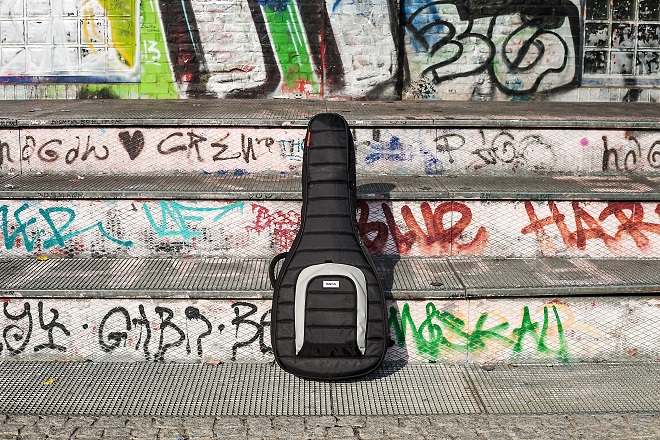
Many cases on the market go for the ‘hard materials is best’ approach to protection, which is not always the best way to do it. Conversely, the M80 is crafted from extremely lightweight, reinforced materials and integral ABS panelling that stealthily absorbs and deflects shocks and dings. This thing is made to military specs, so good luck trying to wear it out. It’s a thoughtful case with incredible functionality, exemplified by the internal ‘360 headlock’, a Velcro suspension system that gingerly yet stoically grips your guitar’s fragile neck and saves it from side and rear impact. To say nothing of its looks. No one wants their sweet axe shielded by a daggy-looking unit, and even a crusty old punk like Bowser could recognise the beauty of the MONO in his heady state.
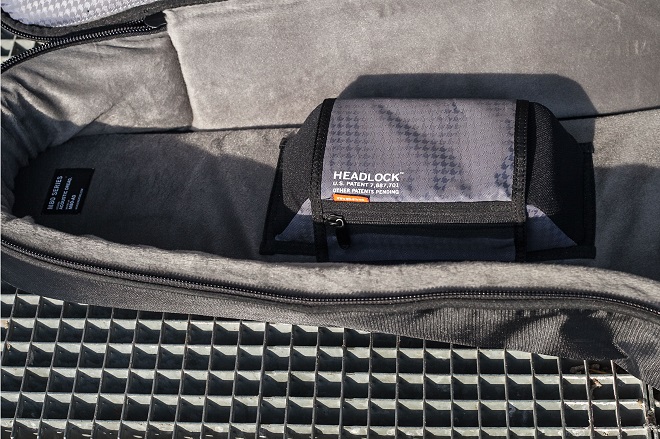
I see Bowser most days hanging out with his crew up at Görlitzer Park. Görlitzer is a gritty community reserve, once an old U-Bahn station, now business headquarters to throngs of local drug dealers who loiter in clusters at each entrance hushing their wares with nods and winks. Most are refugees who have gravitated to this gig due to the fact that asylum laws in Germany prevent ‘illegals’ from earning any more than 1 Euro an hour, which nobody can live on.
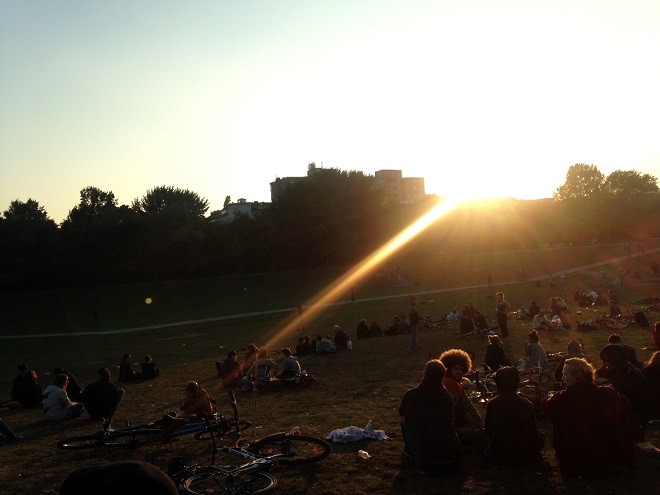
In summer, the burnt late afternoon sun balms over Görlitzer as folks laze on crabgrass lawns necking cold brews, charring meats on disposable grills, the meat smoke rising up and merging with the twilight haze like some scene out of Mad Max. The ubiquitous smell of skunky weed hovers over the park, fire twirlers and jugglers entertain in the dead-grass bowl to boom box beats, as shady deals carry out all night by the scrub-line.
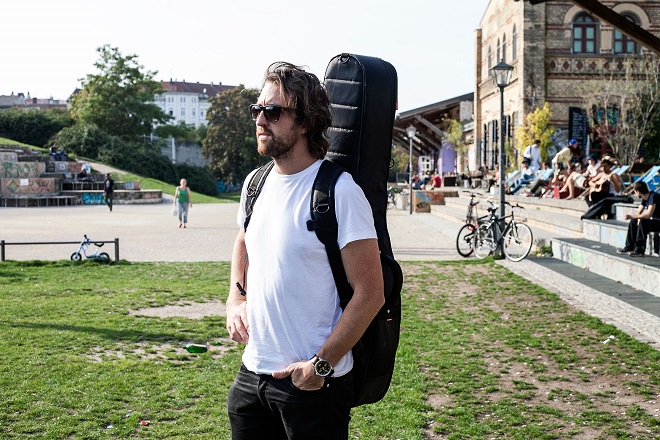
We’re spoiled for choice in Kreuzberg. Ride 10 minutes south and you find another park, Hasenheide, a vast green reserve with an incongruous children’s zoo, camels and bulls and the earthy waft of livestock. Further south you find Tempelhof, a decommissioned former West German airport-cum-public-field where folks can ride, rollerblade and fly kites with abandon over tarmac where Berlin’s commercial and military airlines once flew in and out. If you’re up for a ride on the U-Bahn, there’s Grunewald, a forest west of the city where folks once hid from the Nazi regime and the decrepit ruins of a former US Cold War spy station towers on an outlook hill in the middle of it.

Today, we ride out to Treptower Park 20 minutes by bike east of Kreuzberg past the Wall border of old East Berlin. We enter through the park’s southern edge, to an eerie green emptiness; few people here, just slow flitting trees that evoke the isolation of years when this city was carved in two. We ride on through a corridor of oaks until the bike path clears to the glistening sight of the River Spree, its water choppy from regular tourist ferries. We pause a while there on the green banks. A couple floats past in a fibreglass swan. The sky is brilliant and still but for a chimney on the opposite bank pluming thick grey industrial smoke into it. I rip down the bevelled zips of the MONO bag and grip the guitar from the MONO’s sturdy Velcro headlock, the same headlock that delivered this axe in one piece, blemish-free on my ride from Melbourne to Berlin last May. It navigated the stresses of international air travel like a boss, a sweet rock ‘n’ roll sarcophagus. I remember reading somewhere that they throw guitars in these things off tall buildings and if anything, they just get more playable. For an hour or so I hole up by the waterline with HK and strum a few tunes and ogle the boats and the swans and the smoke and feel good about the day.
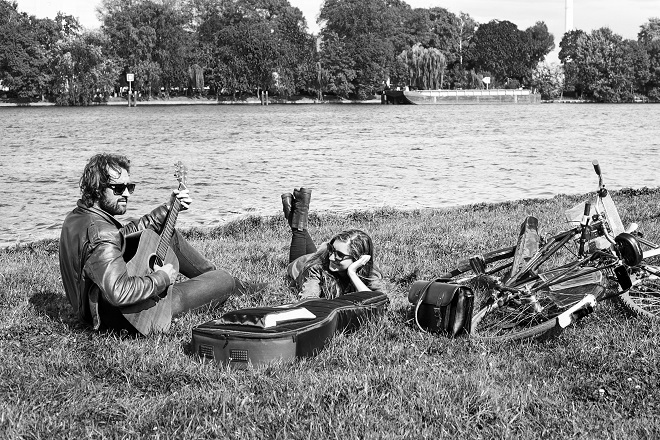
In the distance I see a Ferris wheel. It tells me we’re close to another park, one no longer open to the public. It’s not advertised and it’s not even on the map. I’d not seen it, but I’d heard a lot about its history.
Spreepark opened in the 196os, the first and only amusement park in Soviet-run East Germany. It remained popular through the Cold War but visitors dwindled after the city’s reunification. In 2002 its owner, Norman Witte, flew to Peru to repair some of his attractions and was later imprisoned for attempting to smuggle 180 grams of cocaine back to Berlin inside segments of the Spreepark’s ‘flying carpet’ ride. Spreepark declined into insolvency and for years it has sat there on the banks of the Spree growing mould and rust and eeriness and occasional thrill-seekers who brave the heebies and burly security guards to break in and walk around in it.
We ride past Spreepark’s hodgepodge perimeter fence, peering through barbed wire and sagging mesh. I see rusted train tracks, the decaying yellow and red striped enamel of a fallen big top. An eerie schoolhouse sits dead and boarded-up and I think of Steven King movies and what it might feel like to get stuck out here at night. A man who looks like Jesus passes by, a trio of Goth girls behind him in makeup and chunky-soled shoes. We ride further around to the other side of the fence, the Ferris wheel close now, looming above us. Its empty carriages creak in the sharp wind. We toy with the idea of jumping the fence just as a cordon of security guards appear behind it. I read last week that an arsonist had set fire to the park’s remains, further desecrating what was left.
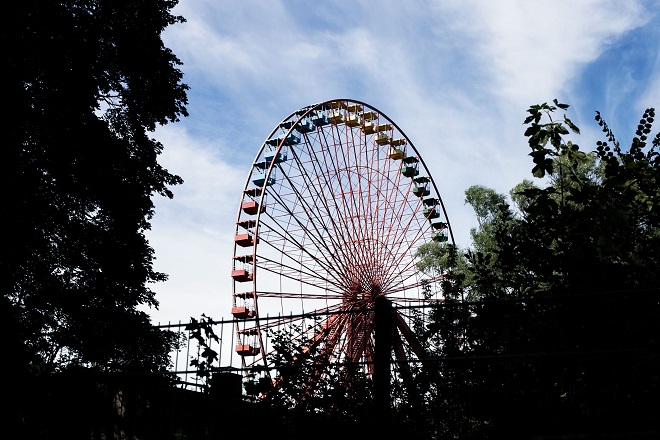
Jesus-fella is nearby again, snapping pictures. “You guys been inside?” he says. “I was just in there.” He shows pictures. One is of the spot where they shot the film ‘Hanna’; another is of him and the three Goth girls. “Met them just before we went in. I think they got escorted out by security.” Jesus-fella’s name is Kevin, from Jersey, a photographer and musician who lives in Bali. We chat about travel, about how it may be easier to break into Spreepark at night. “If you’re game,” he says, shaking his head, “I’d love to get back in there.” He takes an admiring peep at my MONO bag. We shake hands and wish each other well.
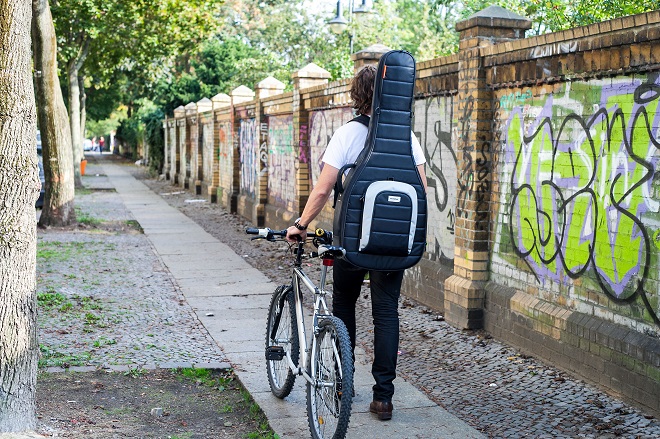
It’s the peak of the day now and the sun is full and the trees of Treptower whisper at us as we careen along the sandy bike track past the Soviet war memorial, built to commemorate 80,000 Russians who fell in the Battle of Berlin. As we turn into Heckmannufer over the canal bridge a man with silver fox hair, dead ringer for David Byrne, stops in his tracks on the side of the road. He turns as I ride past, his eyes wide, glancing at the MONO then at me, and yells out in stilted German-affected English: “Smoke…On…The…Water…Fire…In… The…Sky!” I nod and smile back. The sun is high and soft. The canal water gently ripples as I ride along it. And another set of eyes can’t help but be drawn to the sweet sight of the MONO in flight.
Back in Kreuzberg, the dealers hold their sentry posts by the Görlitzer wall. A crew of crusty punks hole up by the brickwork on Wiener Strasse necking cheap brew. I see Bowser in the ranks, his little dog too. Lunchtime wanderers eat fresh falafels and kebabs and sip tea on outside benches, old men smoking, kids chasing each other.

We lock the bikes up at the apartment. I prise the MONO off my back by the straps. Its veneer is still military-black, though it seems a rogue bird took umbrage at it, or me, somewhere down the Treptower track, a chunky white stain gleaming on the zip pouch where I keep my notebooks and empties. Some call that good luck. I hum ‘Smoke on the Water’ as we ride the lift up to level four, unlock our door and park a while on the balcony to soak up more of the day’s goodness. Kreuzberg streets simmer away below, as our mellow neighbourhood goes about its business.






 Carry Awards
Carry Awards Insights
Insights Liking
Liking Projects
Projects Interviews
Interviews


